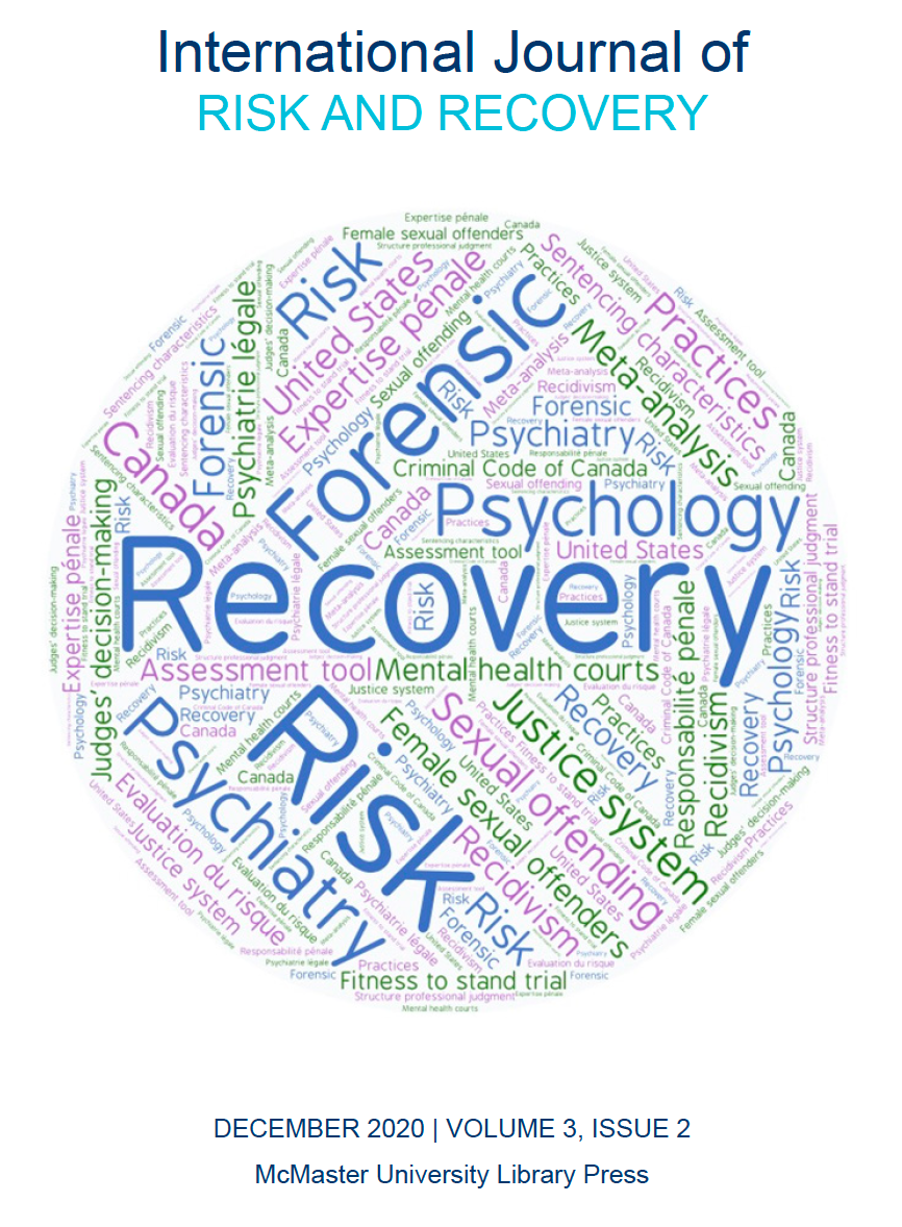Structured professional judgment tool in assessing fitness to stand trial
DOI:
https://doi.org/10.15173/ijrr.v3i2.3531Abstract
In this letter, the authors review briefly the concept of assessing fitness to stand trial and the benefit of developing a structured professional judgment tool.References
Prpa T, Moulden HM, Taylor L, Chaimowitz GA. Relationships between patient-level factors and criteria for fitness to stand trial. Int J Risk Recov 2018;1(3):6-14.
Guy LS, Packer IK, Warnken W. Assessing risk of violence using structured professional judgment guidelines. J Forensic Psychol Pract 2012;12(3):270-83.
Neal TMS, Grisso T. Assessment practices and expert judgment methods in forensic psychol-ogy and psychiatry: an international snapshot. Crim Justice Behav 2014;41(12):1406-21.
Kois L. Prognosing Defendants’ Adjudicative Competence Restoration via Structured Professional Judgment: Initial Instrument Development (Project). (accessed on November 4, 2019).
Schwalbe E, Medalia A. Cognitive dysfunction and competency restoration: using cognitive remediation to help restore the unrestorable. J Am Acad Psychiatry Law 2007;35(4):518-25.
Downloads
Published
How to Cite
Issue
Section
License
Copyright Notice
Authors who publish with this journal agree to the following terms:
- Authors retain copyright of their work and grant the International Journal of Risk and Recovery the right of first publication with the work simultaneously licensed under a Creative Commons Attribution License. This allows others to share the work with an acknowledgement of the work’s authorship and initial publication in this journal.
- Authors are able to enter into separate, additional contractual arrangements for the non-exclusive distribution of the journal’s published version of the work (e.g., post it to an institutional repository or publish it in a book) with an acknowledgement of its initial publication in this journal.
- Authors are permitted and encouraged to post their work online (e.g., in institutional repositories or on their websites) before and during the submission process as it can lead to productive exchanges, as well as earlier and greater citation of published work. (See The Effect of Open Access.)

